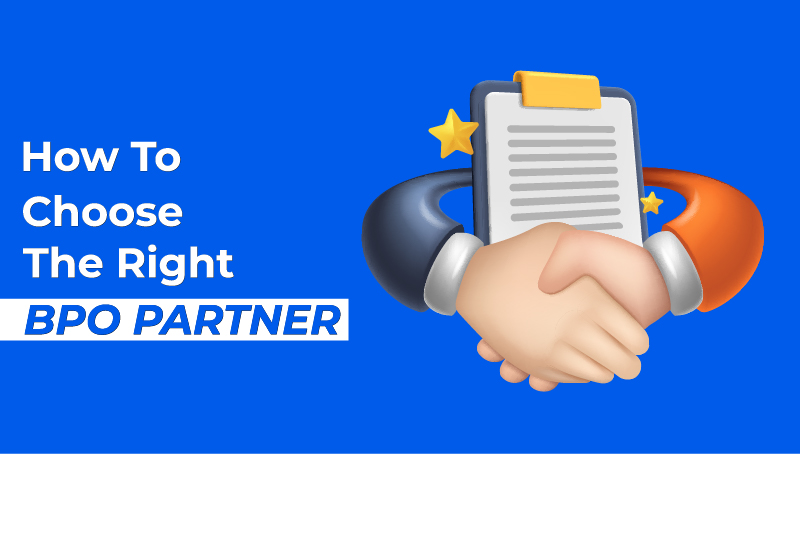How to Choose the Right BPO Partner: A Step-by-Step Guide

Outsourcing has become more than a trend. It is a strategic move for growth-focused companies worldwide. Businesses seek faster scaling, better customer experiences, and cost reduction. However, poor outsourcing decisions can damage long-term performance. Thats why how to choose the right BPO partner matters more than ever.
You need more than a low-cost vendor. You need a business process outsourcing partner that fits your goals and values. The following guide offers clear, actionable steps to help you make a smart decision. Follow this and avoid common outsourcing mistakes before they affect your bottom line.
Understand Your Business Needs First
You must determine if you re outsourcing customer support, finance, tech services, or something else. Be clear about volume, time zones, languages, and technology integration.
You cant begin selecting a BPO service provider if you dont understand your internal limitations. This is the foundation of your vendor search. Without it, even the best provider wont deliver lasting results.
Define BPO Partner Selection Criteria
Here is what most businesses include:
- Industry-specific experience
- Strong client testimonials
- Scalable services
- Cultural alignment
- Technology expertise
- 24/7 multilingual support
- Data security and compliance
Compare BPO Providers Smartly
Create a side-by-side comparison table. Rank vendors on criteria such as scalability, tech stack, and client satisfaction. This BPO provider comparison process helps eliminate emotional bias.
Use tools like Clutch, G2, and verified testimonials. Reach out to former clients. If a vendor has experience in your market, ask how they helped those clients grow. Find evidence, not just claims.
Evaluate Tech and CX Capabilities
Ask about internal platforms and agent training. Review how they use AI or automation to improve speed and consistency. A weak tech stack can create inefficiencies later.
Make sure they have clear protocols for data backup, cybersecurity, and compliance. Ask if they re GDPR-compliant or ISO-certified. These factors can determine your companys risk exposure down the line.
Use an Outsourcing Checklist to Stay on Track
- What are your internal outsourcing goals?
- Does the vendor specialize in your target services?
- What is their reputation and past client feedback?
- How do they train and retain their teams?
- What technologies support their daily operations?
- Do they provide flexible terms and clear contracts?
- Are they compliant with local and global regulations?
Conduct Interviews and Site Visits
Ask about team structures, supervision, and communication methods. Learn how their leadership handles client emergencies. Try to meet the same people who ll manage your account. Ask for metrics on quality assurance and issue resolution.
See if they welcome transparency. Do they answer questions with confidence or avoid direct answers? Trust your gut when assessing how much care they put into client success.
Align on Budget and Flexibility
Check if their services are flexible. Can they adapt to seasonal traffic? Do they offer short-term pilots before full commitment?
Dont forget the transition costs. Vendors who dont plan onboarding well will slow down your business. Choose a partner that sees the big picture and commits beyond setup.
Make a Confident Decision
Ask for a non-disclosure agreement and data protection terms. Your vendor must safeguard customer data like their own. This protects your business reputation from unnecessary risks. Now, celebrate the milestone. You have not only outsourced work, but you have created room for your business to grow.
Conclusion
When considering how to choose the right BPO partner, know that it goes far beyond outsourcing tasks. A solid BPO relationship helps you scale faster, increase customer satisfaction, and reduce costs. Always start with your internal goals. Define your criteria. Use real-world evaluations. Interview the people who ll actually serve you. Compare true value, not just numbers.
When you do all this, you ll choose not just a vendor but a committed partner for growth. Partner with Rank BPO today to scale efficiently, securely, and confidently.